“The patient became rather excited and began to swear profusely; his anger was aroused clearly by incidents connected with his rescue. They had been in the water for a period of about twelve hours when a torpedo-boat destroyer picked them up. Of course the officers in the lifeboats were taken off first. The eight or nine men clinging to the raft the patient was on had to wait in the water for six or seven hours longer until help came.”
The officers had been rescued first, even though they were already relatively safe in lifeboats, while the enlisted men hanging onto the raft were passed over, and some of them drowned as they waited rescue… the patient was horrified at the realization that he was expendable to his own people. The rescuers’ disregard for this man’s life was more traumatic to him than were the enemy attack, the physical pain of submersion in the cold water, the terror of death, and the loss of the other men who shared his ordeal. The indifference of the rescuers destroyed his faith in his community. In the aftermath of this event, the patient exhibited not only classic past-traumatic symptoms but also evidence of pathological grief, disrupted relationships, and chronic depression.
I share the excerpt from Herman’s book to raise awareness about the silent suffering that survivors of sexual abuse have to endure and to challenge people to rethink how they interact with survivors. Though you may not understand fully what the survivor is going through, do not downplay the nature of their experience, pretend as if it did not happen, question their motives for sharing it, or attack their person for speaking up and seeking either help or justice. Re-victimization is an awful reality that survivors have to endure as they seek healing for themselves and protection for others.
The two greatest challenges faced by survivors are the ignorance of the masses on the topic of sexual abuse and the unwillingness of people to hear their story and get involved. Ignorance leads people to say and post things on social media about victims and advocates (or in defense of predators) that are both appalling and devastating. The ignorance of such posts and individuals perpetuates wickedness, promotes deception, and compounds oppression – not to mention hinders people from doing good when goodness is greatly needed. In short, ignorance often causes otherwise good people to share in the sins of others (Luke 23:34; 1 Timothy 5:22).
Before you decide to attack the credibility, truthfulness, and well-being of survivors, educate yourself with knowledge of what is involved in the trauma of sexual abuse. If you don’t want to get educated, keep your opinions of ignorance to yourself so that you don't end up mortally wounding someone in your ignorance.
Here are five books people need to read before engaging in an assault of survivors or spewing “knowledge” before the masses:
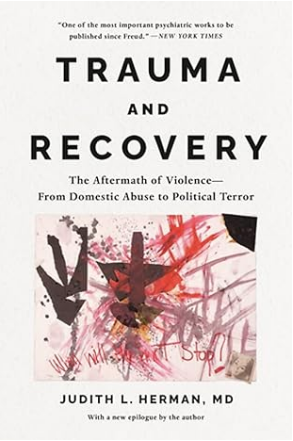
Herman explains in vivid colors what survivors of severe trauma (including war and sexual abuse) suffer psychologically, physically, emotionally, and relationally. One of the greatest challenges in getting people to take sexual abuse seriously is getting people to even consider what survivors have to go through. As Herman poetically states in her book.
“It is very tempting to take the side of the perpetrator. All the perpetrator asks is that the bystander do nothing. He appeals to the universal desire to see, hear, and speak no evil. The victim, on the contrary, asks the bystander to share the burden of pain. The victim demands action, engagement, and remembering.”
The reality of the survivor is messy, difficult, unpleasant, and uncomfortable. Helping survivors forces people to see things they don’t want to see, learn things they don’t want to learn (there’s that ignorance again), and ultimately get involved in situations that would be easier to avoid. Like the priest and the Levite in the Lord’s story of the Good Samaritan, it is easier to walk on by without getting involved; easier at least until Judgment Day.
Survivors of sexual abuse and severe trauma need the love and support of those who surround them – not the casual dismissal and hurtful attacks they often receive. Heman’s book will help you learn to empathize with survivors and understand better what it’s like to walk a short distance in their shoes.
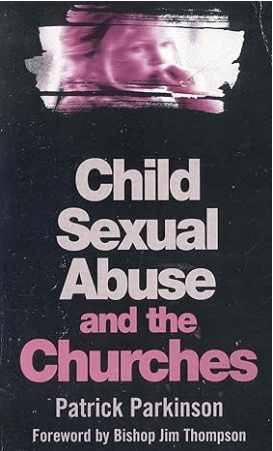
Parkinson does a phenomenal job exposing the dangers that lurk within churches and the reality of the epidemic of evil that is being covered up. Written from both a biblical and psychological background, Parkinson forcefully advocates on behalf of survivors within churches and equips church leaders to recognize how predators work to destroy the vulnerable within the flock. Not only does Parkinson seek to defend, he also seeks to expose how churches fail to defend the innocent, attempt to cover up wickedness, and abandon God’s demand for justice.
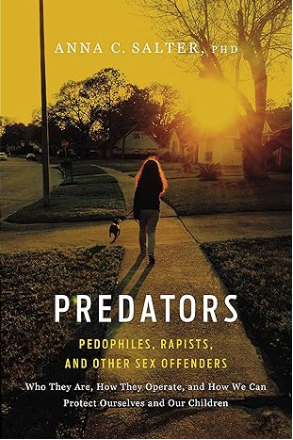
Salter is widely recognized as one of the top researchers and clinicians in her field, and uses her vast experiences and knowledge to peel back the layers of deceptions and tactics used by predators to harm children. Predators is a disturbing book and yet a MUST READ for all parents and church leaders as it strips away ignorance and leaves you better equipped to protect your children and loved ones as a result.
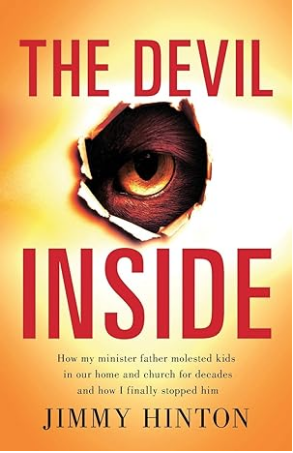
The Devil Inside documents the life of author Jimmy Hinton as he grows up in Pennsylvania attending a church of Christ where his father is the preacher. When Hinton one day takes over the position of preacher at the church where his father had taught for 26 years, he was horrified to discover that his father was a sexual predator who had abused his sister and dozens of other children in the congregation and the community. Hinton recounts the grueling process of turning his father into the authorities, dealing with the fallout in his family, church, and community, and then advocates on behalf of sexual abuse victims within the church. One of the most helpful parts of this book is the realization that people we least expect can be capable of great atrocities and therefore leaders must be diligent to put a plan of action in place to deal with abuse whenever it unfortunately occurs.
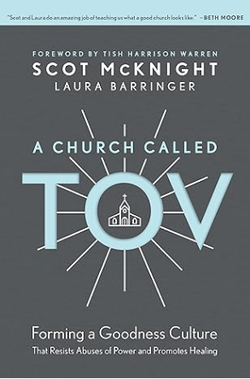
TOV is the Hebrew word for “Good” and McKnight’s goal is to explain what makes a TOV church culture (Good and Healing) as opposed to a bad one. The value of the book is found in the first four chapters as McKnight provides a playbook for how to NOT handle cases of sexual abuse within the church. McKnight documents how Willow Creek (a mega church in Chicago) mishandled allegations of sexual abuse against their celebrity pastor Bill Hybles, attacked the survivors of abuse, and ultimately had the situation blow up in their faces as the survivors too the matter to the media. The actions of Willow Creek are quite similar to those of the Catholic Church in attempting to cover up instances of sexual abuse, as well as the actions of elders and church leaders with whom I have had to interact with in recent months. Though it is depressing to see the lengths churches and leaders will go in an attempt to hide the truth, A Church Called TOV reminds readers that truth will triumph, evil will fail, and God will be glorified. Though I do not agree with many of the views found in other chapters of the book, the first four are well worth the read.
| 6. What is a Girl Worth by Rachael Denhollander Rachel Denhollander is an attorney, a survivor of sexual abuse, and one of the lead witnesses in the case that took down Larry Nassar (the Michigan State doctor and USA Women’s Gymnastics doctor who molested +300 girls). What Is A Girl Worth is an autobiographical account of the abuse Denhollander endured and the struggle she went through to see justice accomplished. Denhollander’ a story is nothing short of heroic. I can’t recommend this book strong enough. It is a MUST read that will leave you changed for the better. |
If there is one thing I want leave you with it’s this: The Lord came into this world to take on flesh and live in the midst of the mess that we have made in order to “seek and save that which was lost” (Luke 19:10). May we as His people share in His mission by helping the hurting and protecting the vulnerable.

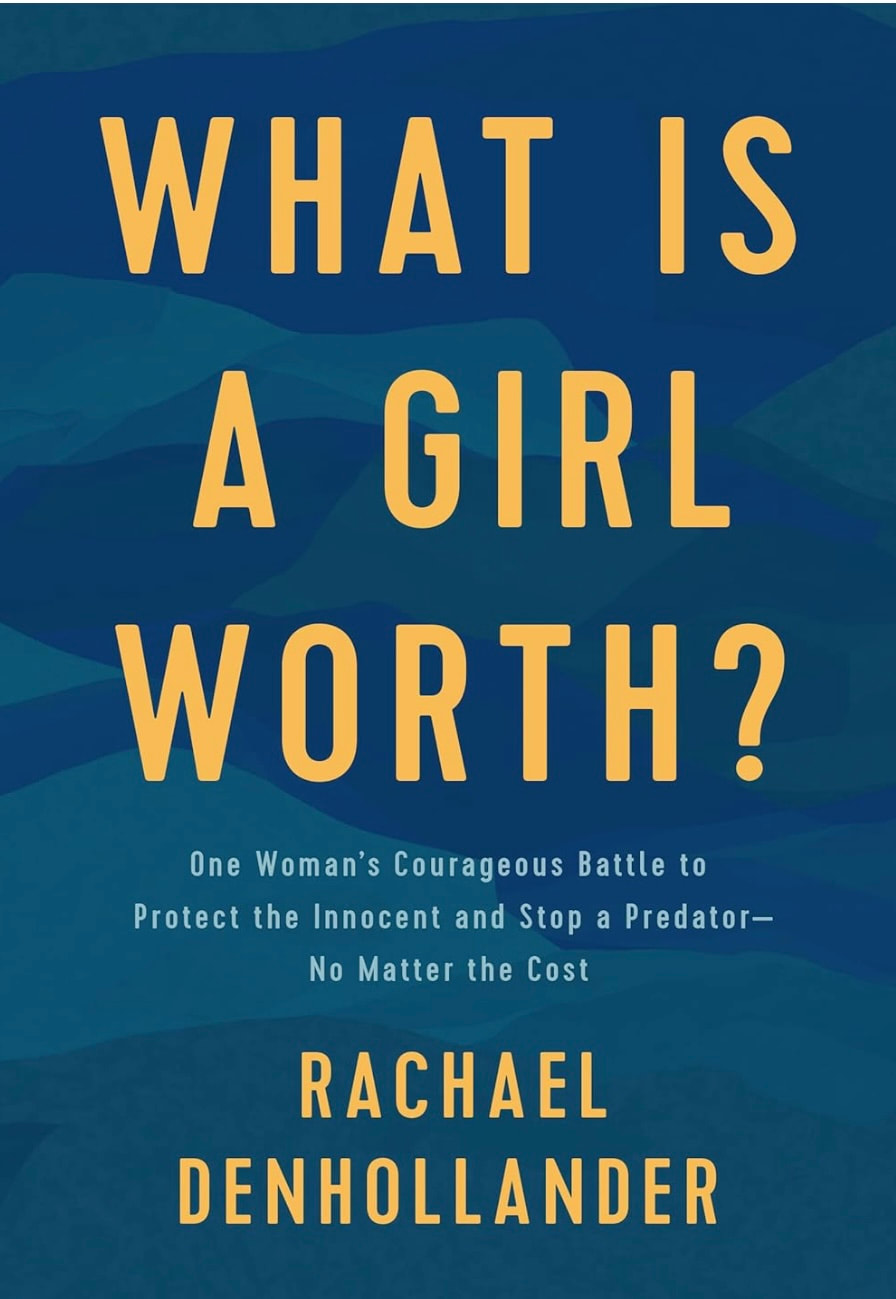
 RSS Feed
RSS Feed
